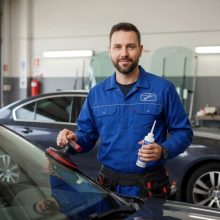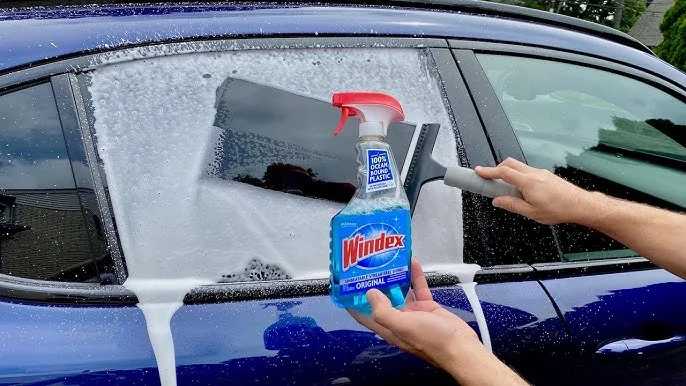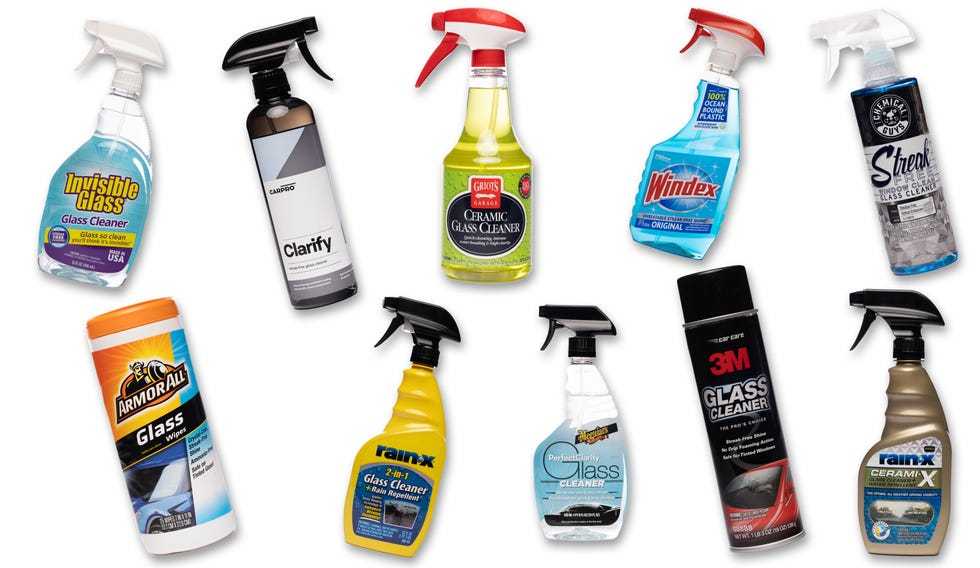Car glass coating can last anywhere from six months to two years, depending on factors like driving habits and maintenance. Imagine having crystal-clear visibility and enhanced protection for years—that’s what a quality glass coating offers! So, how long it lasts really hinges on your care routine and the environment you drive in. Keep reading to discover the key factors that influence longevity and tips to maximize its lifespan.
In short, car glass coating typically lasts between six months and two years. Proper maintenance, regular cleaning, and avoiding harsh chemicals can extend its life, while exposure to extreme weather or frequent washing may shorten it. Understanding these aspects helps you get the most out of your investment, ensuring clear, protected glass for as long as possible.
Keeping your car’s glass spotless and protected isn’t just about aesthetics—it’s also crucial for safety. Many car owners wonder about the durability of glass coatings; the answer depends on how well you care for them. Proper application and regular upkeep can significantly prolong their effectiveness, giving you clearer visibility and better protection over time. Whether you’re a novice or a seasoned car enthusiast, knowing the longevity of your glass coating helps you plan maintenance and enjoy the best possible results.
How Long Does Car Glass Coating Last
Understanding Car Glass Coating
Car glass coating is a liquid polymer applied to your vehicle’s windshield and windows. It creates a thin, protective layer that helps repel water, dirt, and grime. Many car owners choose glass coating to improve visibility and ease of cleaning.
Factors That Influence Longevity
Several elements affect how long a glass coating lasts on your vehicle. These include the quality of the coating product, the application process, and how you take care of your car afterward. Knowing what impacts durability helps you get the best results.
Quality of the Coating Product
High-quality coatings tend to last longer because they contain better ingredients and are formulated for durability. Cheaper products may wear out more quickly, requiring more frequent reapplications.
Application Process
Proper application is vital. A professional detailer ensures even coverage and correct curing, which can extend how long the coating remains effective. DIY applications may result in uneven layers that wear off faster.
Environmental Exposure
Exposure to harsh weather conditions, such as intense sunlight, heavy rain, or snow, can degrade the coating. Car owners living in extreme climates should expect a shorter lifespan from their glass protection.
Car Usage and Maintenance
Frequent cleaning, especially with abrasive materials, can diminish the coating. Additionally, daily exposure to pollutants or chemicals can wear down the protection over time. Proper maintenance is key to prolonging longevity.
Average Lifespan of Car Glass Coatings
Most high-quality glass coatings last around 6 months to 2 years. This range depends on how well the coating was applied and the conditions your car faces regularly. The typical lifespan falls into these categories:
| Type of Coating | Estimated Duration |
|---|---|
| Basic Ceramic Coating | 6 months to 1 year |
| Advanced Ceramic Coating | 1 to 2 years |
| Premium or Professional-Grade Coating | Up to 3 years with proper care |
Signs That Your Glass Coating Is Worn Out
It’s important to spot when the coating has started to wear. Here are common signs:
- Reduced water beading or sheeting effect
- Increased dirt and grime sticking to the surface
- More frequent streaks and water spots
- Visible dullness or patches on the glass
If you notice these signs, it may be time to consider reapplying the coating for optimal visibility and protection.
How to Maximize the Lifespan of Your Glass Coating
Proper care extends the life of your car’s glass protection. Follow these maintenance tips:
Regular Gentle Cleaning
Use pH-neutral glass cleaners and soft cloths to wash your windows. Avoid abrasive scrubbers that can scratch or strip the coating.
Avoid Using Harsh Chemicals
Stay away from ammonia-based or solvent-heavy cleaners. These substances can degrade the coating material.
Limit Exposure to Environmental Stressors
Whenever possible, park indoors or under shade. Cover your vehicle during harsh weather to reduce coating wear.
Follow Manufacturer Recommendations
Use the cleaning products and methods suggested by the coating manufacturer to ensure longevity.
Reapplication and Maintenance Tips
Depending on the coating type, reapplication might be necessary every 6 months to 3 years. Regular inspections help you determine when re-application is needed.
Professional Recoating
Booking a professional service ensures proper reapplication, maintaining your car’s clear visibility and protection.
DIY Maintenance
Some coatings allow for touch-up or maintenance washes. Always follow the instructions provided with your coating product for best results.
Related Topics to Consider
To make your glass protection more effective, consider other related enhancements:
- Applying window tints for added UV protection
- Using water-repellent treatments periodically
- Protecting your windshield with a dedicated cover during harsh weather
Summary of Key Points
Remember these essentials about car glass coating longevity:
- Most coatings last between 6 months and 2 years
- Application quality significantly affects durability
- Environmental factors and maintenance routines influence lifespan
- Signs of wear include poor water runoff and increased dirt accumulation
- Proper care extends the effective life of your coating, saving money in the long run
Ensuring your car’s glass is well protected depends greatly on choosing the right coating, applying it correctly, and maintaining it properly. Regular inspections and timely reapplications keep your windows clear and your viewing safe.
Ceramic Coating Myths, Lies, and Misconceptions
Frequently Asked Questions
How does the quality of the coating influence its longevity?
The durability of car glass coating heavily depends on the quality of the product applied. Premium coatings use advanced materials that adhere better to the glass surface, resisting environmental factors such as UV rays, water, and dirt. When a high-quality coating is properly applied, it can last longer, providing protection and a shiny finish for several years. Cheaper or lower-grade products tend to wear out faster, necessitating more frequent reapplications.
What maintenance practices help extend the life of car glass coating?
Proper maintenance is key to maximizing the lifespan of your car glass coating. Regularly washing your vehicle with pH-balanced, non-abrasive cleaners prevents dirt and contaminants from degrading the coating. Avoid using harsh or abrasive materials that can scratch or weaken the surface. Applying a booster or topper as recommended can also help reinforce the coating, ensuring it remains effective and protective over time.
In what environmental conditions does car glass coating tend to deteriorate faster?
Extreme environmental conditions accelerate the wear of car glass coatings. Frequent exposure to intense sunlight, high temperatures, and harsh UV rays can cause the coating to break down prematurely. Similarly, areas with heavy rainfall, snow, or road salts contribute to faster deterioration due to constant moisture and chemical exposure. Parking your vehicle in shaded or covered areas helps preserve the coating and extend its life.
Final Thoughts
Car glass coating typically lasts between six months to a year, depending on usage and maintenance. Regular washing and avoiding harsh chemicals extend its durability.
When properly cared for, a high-quality coating can maintain its effectiveness for up to 12 months. Remember, how long does car glass coating last depends on environmental exposure and driving habits. Consistent upkeep ensures you get the most out of your investment.



